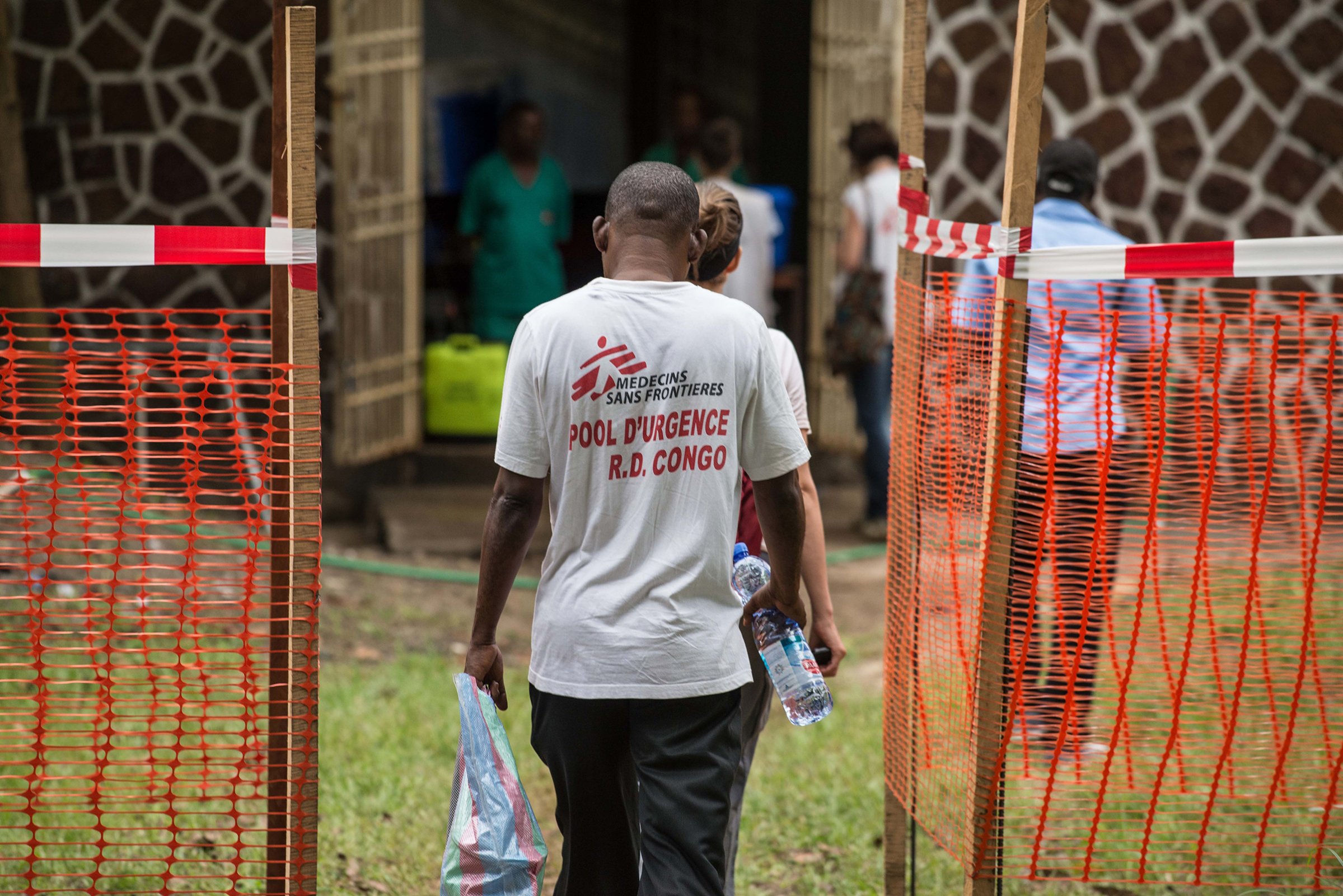
After a spate of attacks on Ebola treatment facilities at the center of an outbreak in the Democratic Republic of Congo, medical charity Médecins Sans Frontières (MSF) suspended operations in the area on Feb. 28. With 894 cases and 561 deaths since the outbreak was declared in August, the epidemic is the second largest on record. In the wake of the attacks, the highly contagious virus is likely to spread.
DIFFICULT DECISION
After one clinic was set alight on Feb. 24, dozens of armed men flooded another on Feb. 27, shooting up sanitation facilities and setting more fires. At least one person was killed, and the whereabouts of several patients who fled into the forest–some of whom could be contagious–are unknown. MSF’s decision to withdraw was not an easy one for the organization, which was key in ending 2014’s West African outbreak. But its on-the-ground emergency coordinator, Emmanuel Massart, told NPR the attacks left him little choice: “When I send my teams, I need to be sure that they are going to come back alive.”
THE TRUST PROBLEM
Urgently putting into effect an Ebola treatment program can come at the expense of community education. Ebola’s initial symptoms resemble those of diseases like malaria, so the newly infected rarely seek help. Most are unaware that patients should be isolated and that the dead, still teeming with the virus, shouldn’t be buried in the traditional way. Combine ignorance and fear with eastern Congo’s long-simmering guerrilla war and a suspicion of strangers, and violence can erupt. Massart has said that, in retrospect, MSF should have engaged more with locals from the start.
CONTAINING THE SPREAD
Health officials are calling on the World Health Organization to declare a public-health emergency of international concern, which would mobilize international aid. But such a declaration often sparks travel restrictions that can cut off vital supply routes and prevent health experts from coming in. As MSF has discovered, progress in defeating Ebola often means taking a step backward for every two steps forward.
More Must-Reads from TIME
- Cybersecurity Experts Are Sounding the Alarm on DOGE
- Meet the 2025 Women of the Year
- The Harsh Truth About Disability Inclusion
- Why Do More Young Adults Have Cancer?
- Colman Domingo Leads With Radical Love
- How to Get Better at Doing Things Alone
- Michelle Zauner Stares Down the Darkness
Contact us at letters@time.com